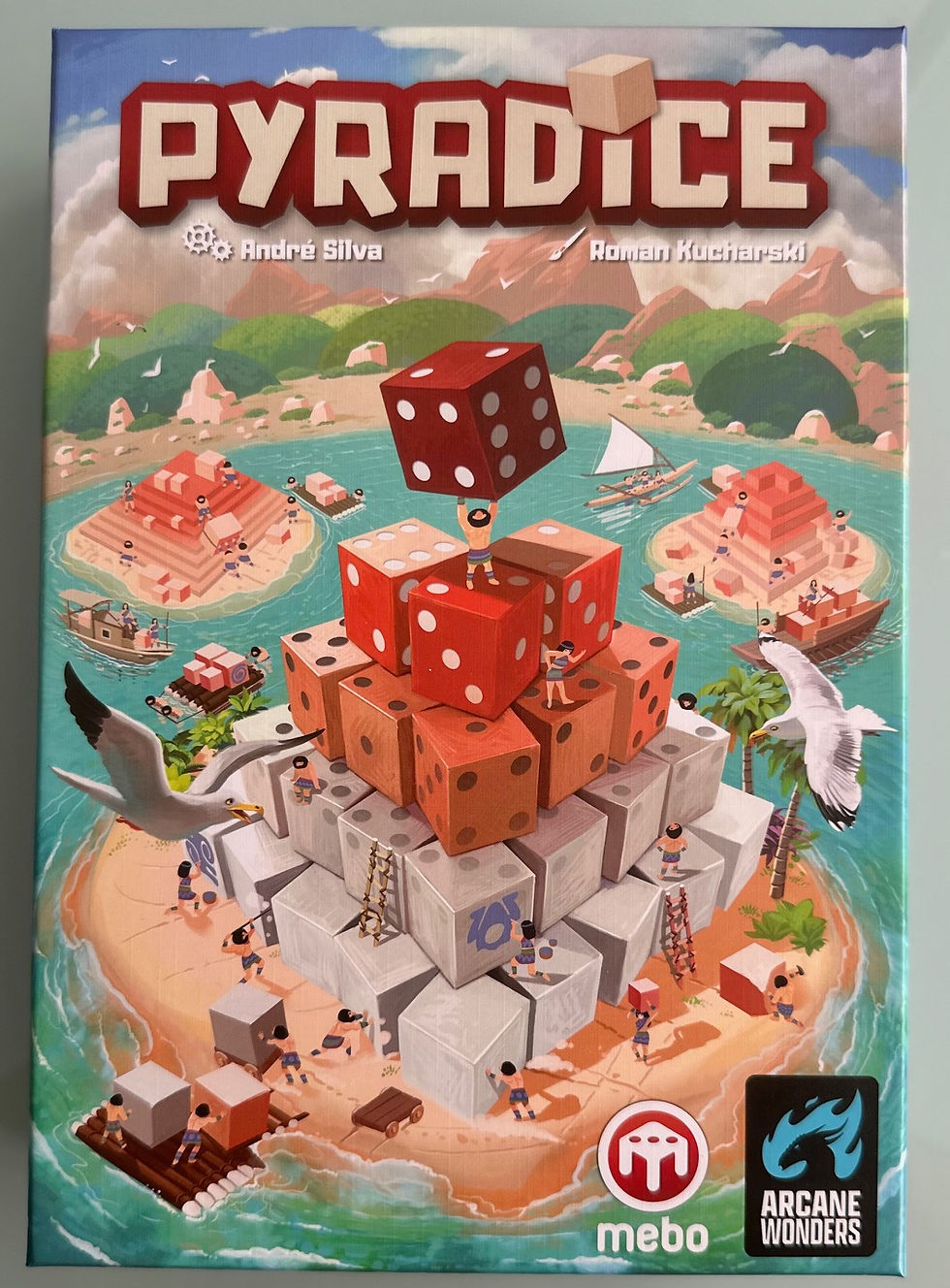Dirty Money
- Board's Eye View

- Dec 28, 2023
- 3 min read
Singapore-based publishers Capital Gains Studio seem to have developed an obsession with the murky depths of the international money markets. It's a theme that they've returned to in all of their games, including Debtzilla and Cryptocurrency, and it's very much at the front and centre of Daryl Chow's design for Dirty Money: The Money Laundering Game.

Dirty Money is a drafting and tableau building game for 2-5 players, with art by Alan Bay. You start off by taking one of the five characters cards. Even the rules refer to all the characters as villains and they each have a unique special ability. Asymmetric abilities always seem to generate arguments about whether or not some are better than others but in our plays at Board's Eye View, players were all envious of each other's special abilities at various points in the game - which is usually a good indicator of balance. There are four currencies in the game: US dollars, Euros, Japanese Yen and Cryptocurrency, which is wild so can be used as any of the other three. Currency cards vary in value from 2 to 5, in addition some of each of the currency cards and all of the cryptocurrency cards have a symbol to show they are 'dirty money': the ill-gotten proceeds of crime.
There are locations for The USA, Japan and Europe, and at each of them, plus the Banana Republic and other locations added when playing with four or five players, two random currency cards are placed out. At the main geographic locations there are also two 'placement cards' available to be bought. These will have a cost of 6-9 in whatever is the relevant local currency, and when you buy a card and add it to your tableau, you gain its benefit.
On your turn, you choose a location and take from it the currency cards there. You can also then buy one or both the placement cards at that location, provided of course you have the appropriate currency. Some of the currency cards tho' are action cards rather than money. When they are chosen the actions are activated. These actions vary but typically cards like 'Audit' require all the players to show the currency cards in their hand and penalise the player with the most 'dirty money'. You tuck a face-down currency card underneath your character card as a 'blacklist' card. At the end of the game (when a player has built a tableau of 10 placement cards), players score for their placement cards (which can include set collection bonuses) but they have to deduct points for their blacklist cards. The player with the least blacklist cards avoids any deductions but the player with the most loses an additional 2 points.
Dirty Money then is a fast-paced game that's easy to learn and play but it offers players some meaty choices over which currency cards to take and how best to spend them. There's a push-your-luck element too over whether to hold onto 'dirty money' cards (particularly those cryptocurrency wild cards) or whether to launder that money as quickly as you can to avoid getting hit with action card penalties. Only one player can go to a location, so the key interaction in the game is over the choice of where to go - both for your own benefit and in order to deny scoring opportunities to a rival player; typically, for example when an opponent is obviously collecting artworks for the escalating set collection value or where an opponent has scoring bonuses for cards from a specific location. Going to the Banana Republic location won't give you any placement card buying opportunities but it will let you take the first player marker (and get rid of a blacklist card), so it can be a tactically good choice to give you future advantage. The action cards mostly involve 'take that' effects but this doesn't feel like an aggressive 'take that' game: players will be mostly focused on optimising their own tableau-building choices.
#DirtyMoney #CapitalGainsStudio #economic #setcollection #tableaubuilding #moneylaundering #pushyourluck




